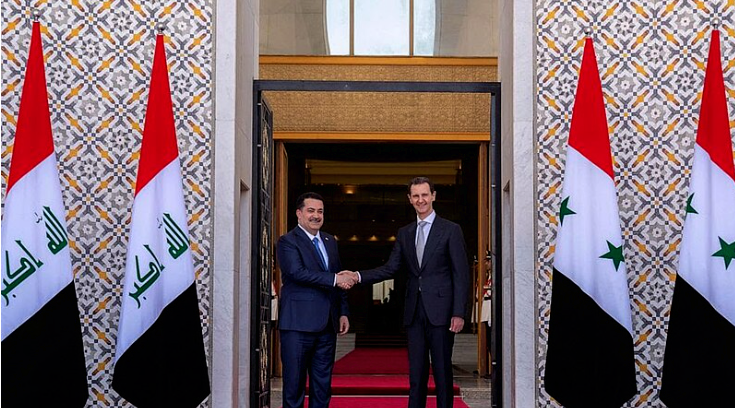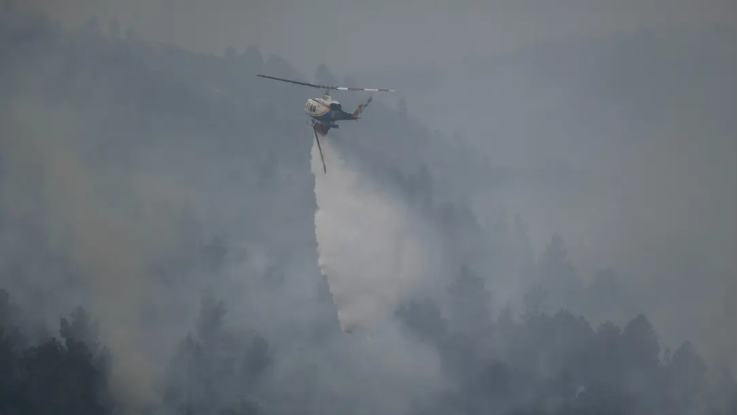Iraq's Sudani and Syria’s Assad Hold Talks in Damascus
Iraqi Prime Minister Mohammed Shia Al-Sudani traveled to Syria this past weekend. He met with Syrian Pres. Bashar al-Assad in Damascus in the first visit by an Iraqi leader since the onset of the Syrian civil war.

Facts
- Iraqi Prime Minister Mohammed Shia Al-Sudani traveled to Syria this past weekend. He met with Syrian Pres. Bashar al-Assad in Damascus in the first visit by an Iraqi leader since the onset of the Syrian civil war.1
- The two leaders reportedly discussed fighting the illicit drug trade, the return of Syrian refugees, lifting Western sanctions on Damascus, Israel’s strikes on Syrian territory, and water shortages in the Euphrates River, which runs through both countries, due to Turkish projects [upriver].2
- Both Sudani and Assad stressed the necessity of containing the drug trade, specifically the amphetamine Captagon, with Sudani saying that security coordination would be needed to control the border areas between the two countries. Sudani also called for Syria's further integration into the Arab fold.3
- Sudani's office said in a statement that talks included potential avenues for expanding cooperation in the fields of trade, economy, transportation, tourism, climate change, and terrorism.2
- Iraq and Syria, two countries in which Iran possesses a strong influence, have had close relations even after Syria was expelled from Arab League in 2011. The two countries also both fought the Islamic State group (IS), which captured large swaths of both countries in 2014.4
- Syria was readmitted to the Arab League earlier this year with Assad attending the League's annual summit in May. Efforts to normalize the Syrian government increased after the devastating earthquake in northern Syria and southern Turkey in early February and a Chinese-brokered diplomatic agreement between regional rivals Saudi Arabia and Iran in March.5
Sources: 1Reuters, 2Associated Press, 3DW, 4Al Jazeera, and 5Ahram Online.
Narratives
- Pro-establishment narrative, as provided by Middle East Eye. The fact that corrupt Arab leaders are now rolling out the red carpet for the Syrian regime — that bloodily crushed pro-democracy protests in 2011 and sparked a vicious civil war — is deeply disappointing and ultimately only strengthens Assad and his allies. Washington will continue to advocate for Syrians' humanitarian relief and security and remains steadfast in its belief that there can be no rapprochement with Syria without credible progress toward a political settlement to the conflict.
- Establishment-critical narrative, as provided by Al Arabiya English. Syria's normalization was a long overdue step and underscores recent efforts by regional powers to pursue their own policies, independent of the US, to build peace and stability in the Middle East. This will ultimately strengthen the region's position on the world stage. Syria's reintegration into the Arab fold — rather than its exclusion as demanded by Washington — is the surest and most effective way to overcome the Syrian crisis and humanitarian hardship.






